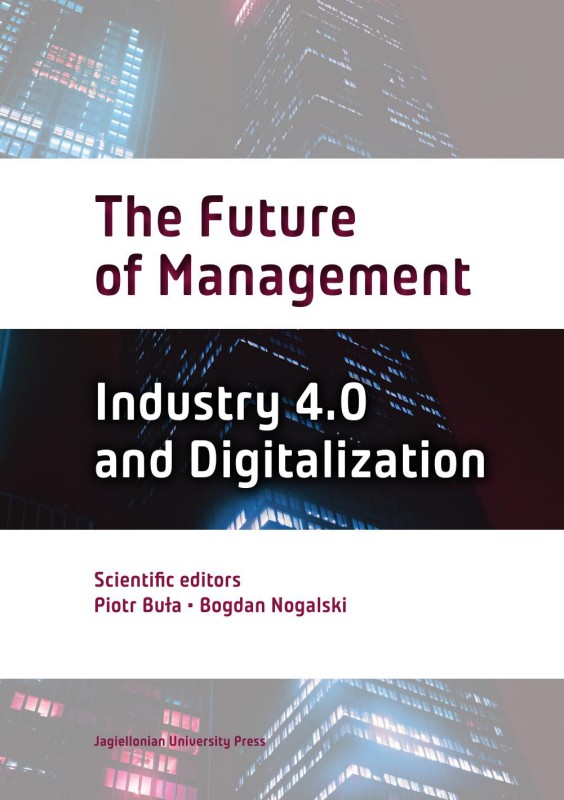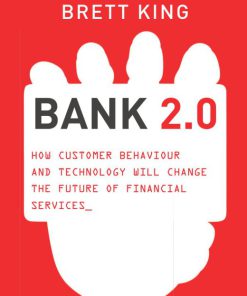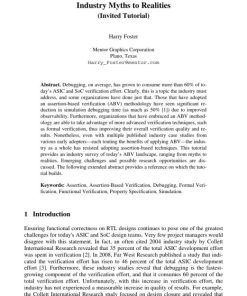The Future of Management Industry 4 0 and Digitalization 1st edtion by Piotr Buła, Bogdan Nogalski ISBN 8323348596 978-8323348597
$50.00 Original price was: $50.00.$25.00Current price is: $25.00.
Authors:Piotr Buła, Bogdan Nogalski (ed.) , Series:Management [438] , Author sort:Piotr Buła, Bogdan Nogalski (ed.) , Languages:Languages:eng , Published:Published:May 2021 , Publisher:Palgrave Macmillan
The Future of Management. Industry 4.0 and Digitalization 1st edtion by Piotr Buła, Bogdan Nogalski – Ebook PDF Instant Download/Delivery. 8323348596, 978-8323348597
Full download The Future of Management. Industry 4.0 and Digitalization 1st edtion after payment

Product details:
ISBN 10: 8323348596
ISBN 13: 978-8323348597
Author: Piotr Buła, Bogdan Nogalski
The world is standing on the very edge of the fastest industrial revolution ever. A revolution which will rapidly increase the efficiency of many production processes. Automation (both mechanical and the one happening with computer processes) will reduce the demand for human work and release a huge amount of time we can use for further development. Industry 4.0 has been a buzz word recently. It is about interconnecting devices and giving them the possibility to making autonomous decisions. It is certainly a way of increasing efficiency of production, but it will also have impact on the facilitation of other processes within the organization.
At the same time, it is said that we are on the verge of an ecological catastrophe and that we have merely a few years before irreversible climate changes may endanger the future of our species. Some say, that the development of AI will solve most of our problems. We believe that the need for the activity of human beings will be even bigger.
The Future of Management. Industry 4.0 and Digitalization 1st Table of contents:
-
Introduction: The Changing Landscape of Management
- Overview of Industry 4.0 and its impact on global business
- The role of digitalization in transforming management practices
- Key technologies driving Industry 4.0: AI, IoT, robotics, big data, and blockchain
- Structure and objectives of the book
-
Chapter 1: Understanding Industry 4.0
- Defining Industry 4.0: Origins, concepts, and key technologies
- The industrial revolution: From Industry 1.0 to Industry 4.0
- The role of smart manufacturing and the connected factory
- The convergence of physical and digital worlds
-
Chapter 2: Digital Transformation and the Future of Management
- The concept of digital transformation in business
- How digitalization is reshaping organizational structures
- Leadership and decision-making in a digital world
- The integration of new technologies into existing business models
-
Chapter 3: The Role of Artificial Intelligence and Automation in Management
- How AI and automation are revolutionizing management functions
- Use cases: AI in decision-making, customer service, and HR management
- Robotic process automation (RPA) and its applications in business operations
- The challenges and opportunities of AI adoption for managers
-
Chapter 4: Big Data and Analytics in the Digital Era
- The importance of big data in management decision-making
- Data-driven management: How to use data analytics for strategic advantage
- The rise of predictive analytics, machine learning, and AI in business
- Ethical considerations and challenges in big data usage
-
Chapter 5: The Internet of Things (IoT) and Smart Organizations
- The IoT and its impact on business operations and management
- How connected devices and sensors enable smart manufacturing and logistics
- The IoT in supply chain management, inventory tracking, and asset management
- Organizational challenges and opportunities with IoT implementation
-
Chapter 6: Organizational Structures in the Age of Industry 4.0
- How digitalization is changing traditional organizational hierarchies
- The shift to flatter, more flexible, and agile organizational structures
- Virtual teams and remote management in a digital world
- The role of cross-functional collaboration and networked organizations
-
Chapter 7: Leadership in the Digital Age
- The evolving role of leadership in a rapidly changing technological environment
- Leading digital transformation: Strategies and skills for modern leaders
- Change management and leading through technological disruptions
- The rise of transformational and servant leadership styles in the digital era
-
Chapter 8: Innovation and Product Development in Industry 4.0
- How digital technologies are reshaping innovation and R&D
- Agile methodologies and their role in fast-paced product development
- Collaborative innovation: Crowdsourcing, open innovation, and digital ecosystems
- The role of prototyping, simulation, and 3D printing in product development
-
Chapter 9: Digital Marketing and Customer Experience Management
- The transformation of marketing in the digital age: Social media, SEO, and data analytics
- Personalization and customer engagement through digital channels
- The impact of Industry 4.0 on customer service: AI-driven chatbots, virtual assistants, and automation
- Enhancing customer experience through digital touchpoints and data integration
-
Chapter 10: The Future of Work: Workforce Management and Skills Development
- The changing nature of work in the context of digitalization and automation
- Upskilling and reskilling the workforce for the future job market
- The rise of the gig economy and its impact on traditional employment
- The role of HR technology in talent acquisition, performance management, and employee engagement
-
Chapter 11: Managing Cybersecurity and Data Privacy in the Digital Age
- The growing importance of cybersecurity in Industry 4.0
- Strategies for protecting digital assets and sensitive customer data
- Managing data privacy and compliance in a globalized digital environment
- The role of blockchain technology in enhancing security and transparency
-
Chapter 12: Sustainability and Corporate Social Responsibility in Industry 4.0
- How digitalization can promote sustainability in business operations
- The role of Industry 4.0 technologies in reducing environmental footprints
- Corporate social responsibility (CSR) in the digital era
- Smart cities, green tech, and the future of sustainable business practices
-
Chapter 13: Ethical Considerations and Challenges in the Digital Era
- The ethical implications of AI, automation, and big data
- Balancing efficiency with privacy and human rights
- The responsibility of organizations in ensuring equitable access to technology
- Regulatory frameworks and governance in the digital economy
-
Chapter 14: Case Studies: Industry 4.0 in Action
- Case study 1: A global manufacturer adopting smart factories and automation
- Case study 2: A digital marketing campaign using big data and AI for customer engagement
- Case study 3: A tech startup leveraging Industry 4.0 tools to disrupt an established industry
- Case study 4: Transforming an organization’s structure and culture through digitalization
-
Conclusion: Preparing for the Future of Management
- Key takeaways on the role of Industry 4.0 and digitalization in shaping future management practices
- The importance of continuous learning and adaptability for managers
- The future of leadership in a hyper-connected, digital, and automated world
- Final reflections on managing in the age of disruption
-
References
-
Index
People also search for The Future of Management. Industry 4.0 and Digitalization 1st:
the future of management
the future of business management
the role of change management in digital transformation
the future of technology management
industry 4.0 the future of manufacturing












